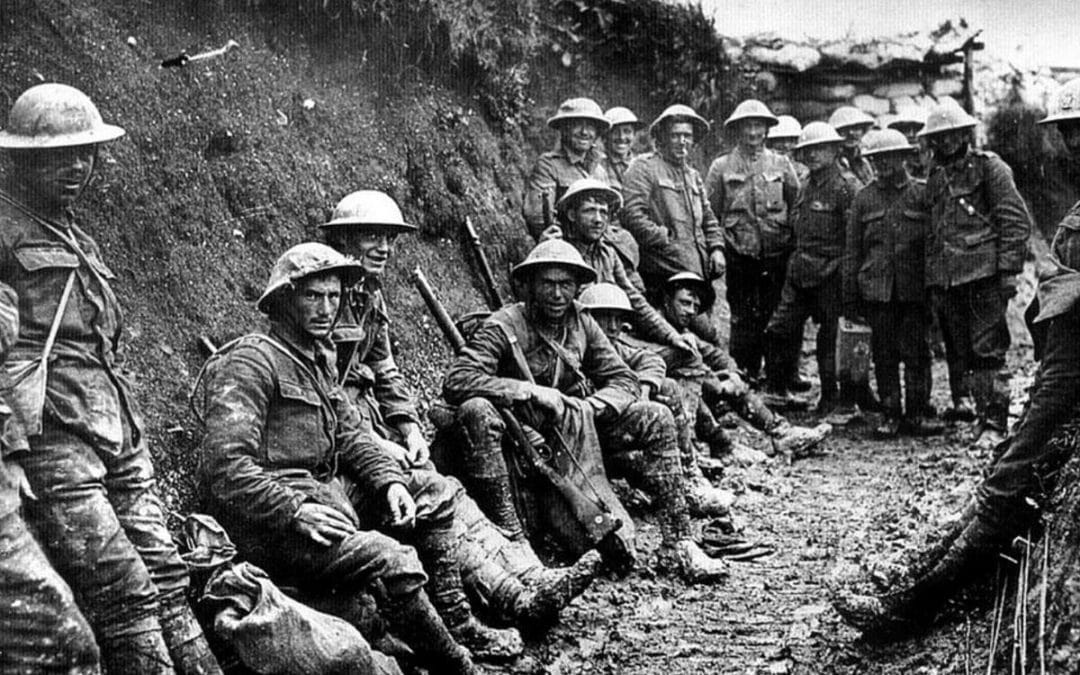Editor's Note: This Murray Rothbard article was originally featured in the Spring-Autumn 1967 issue of Left and Right: A Journal of Libertarian Thought, and is republished with permission of the Ludwig von Mises Institute. Credit for the translation belongs to Mamela Fiallo Flor, a writer with the PamAm Post. Este artículo apareció originalmente en Left and Right: A Journal of Libertarian Thought (Izquierda y Derecha: un diario de pensamiento libertario), primavera-otoño de 1967 y se vuelve a publicar con permiso del Instituto Ludwig von Mises. El problema con los sectarios, ya sean...

War Guilt in the Middle East
This article was originally featured in Left and Right: A Journal of Libertarian Thought, Spring-Autumn 1967 and is republished with permission of the Ludwig von Mises Institute. The trouble with sectarians, whether they be libertarians, Marxists, or world-governmentalists, is that they tend to rest content with the root cause of any problem and never bother themselves with the more detailed or proximate causes. The best, and almost ludicrous, example of blind, unintelligent sectarianism is the Socialist Labor Party, a venerable party with no impact whatsoever on American life. To any...

World War I as Fulfillment: Power and the Intellectuals
I. Introduction In contrast to older historians who regarded World War I as the destruction of progressive reform, I am convinced that the war came to the United States as the "fulfillment," the culmination, the veritable apotheosis of progressivism in American life.[1] I regard progressivism as basically a movement on behalf of Big Government in all walks of the economy and society, in a fusion or coalition between various groups of big businessmen, led by the House of Morgan, and rising groups of technocratic and statist intellectuals. In this fusion, the values and interests of both...

When Murray Rothbard Predicted the Menthol Ban
Murray Rothbard wrote the following article in August 1994. Quick: Which is America’s Most Persecuted Minority? No, you’re wrong. (And it’s not Big Business either: one of Ayn Rand’s more ludicrous pronouncements.) All right, consider this: Which group has been increasingly illegalized, shamed and denigrated first by the Establishment, and then, following its lead, by society at large? Which group, far from coming out of the “closet,” has been literally forced back into the closet after centuries of walking proudly in the public square? And which group has tragically internalized the...

War, Peace, and the State
The libertarian movement has been chided by William F. Buckley, Jr., for failing to use its "strategic intelligence" in facing the major problems of our time. We have, indeed, been too often prone to "pursue our busy little seminars on whether or not to demunicipalize the garbage collectors" (as Buckley has contemptuously written), while ignoring and failing to apply libertarian theory to the most vital problem of our time: war and peace. There is a sense in which libertarians have been utopian rather than strategic in their thinking, with a tendency to divorce the ideal system which we...

Confessions Of a Right-Wing Liberal
This classic piece appeared in Ramparts, VI, 4, June 15, 1968. It was the fulfillment of an ideological trend that began a few years earlier when consistent libertarians, led by Rothbard, sensed an estrangement from the American right-wing due to its support of militarism, police power, and the corporate state. Here Rothbard presents a rationale for why he and others had, by 1968, largely given up on the Right as a viable reform movement toward liberty, realized that the Right was squarely on the side of power, and thereby developed an alternative intellectual historiography. The relevance...

Left and Right: The Prospects for Liberty
[Originally appeared in Left and Right, Spring 1965, pp. 4-22.] The Conservative has long been marked, whether he knows it or not, by long-run pessimism: by the belief that the long-run trend, and therefore Time itself, is against him, and hence the inevitable trend runs toward left-wing statism at home and Communism abroad. It is this long-run despair that accounts for the Conservative's rather bizarre short-run optimism; for since the long run is given up as hopeless, the Conservative feels that his only hope of success rests in the current moment. In foreign affairs, this point of view...

How the Fed Rules and Inflates
[From chapter 23 of The Case Against the Fed.] Having examined the nature of fractional reserve and of central banking, and having seen how the questionable blessings of Central Banking were fastened upon America, it is time to see precisely how the Fed, as presently constituted, carries out its systemic inflation and its control of the American monetary system. Pursuant to its essence as a post-Peel Act Central Bank, the Federal Reserve enjoys a monopoly of the issue of all bank notes. The U. S. Treasury, which issued paper money as Greenbacks during the Civil War, continued to issue...









